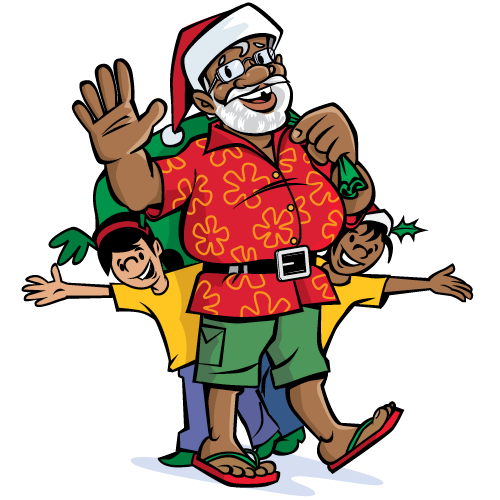

International Year of Indigenous Languages logo .As announced by the United Nations, the overarching theme is Indigenous languages matter for development, peace building and reconciliation. UNESCO emphasises that “languages play a crucial role in the daily lives of people, not only in education, communication, social integration and development, but also as a repository for each person’s unique identity, cultural history, traditions and memory”.
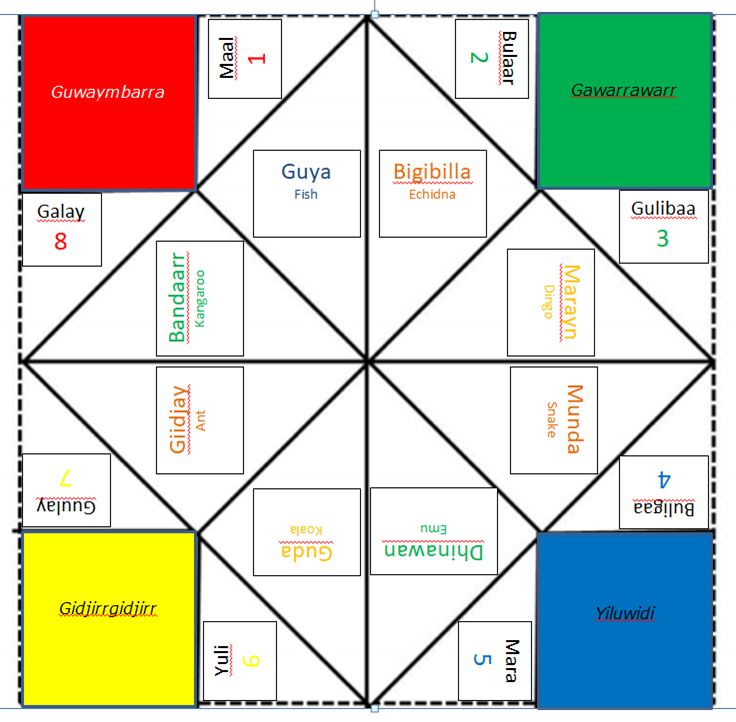
This post will provide suggestions and ideas for IKCs, libraries, schools and community groups to celebrate the International Year of Indigenous Languages. The above image is a quick and easy template for a chatterbox in language! It features 20 words in Gamilaraay language from South-West Queensland and is a fun way to learn everyday words in an Aboriginal or Torres Strait Islander language.
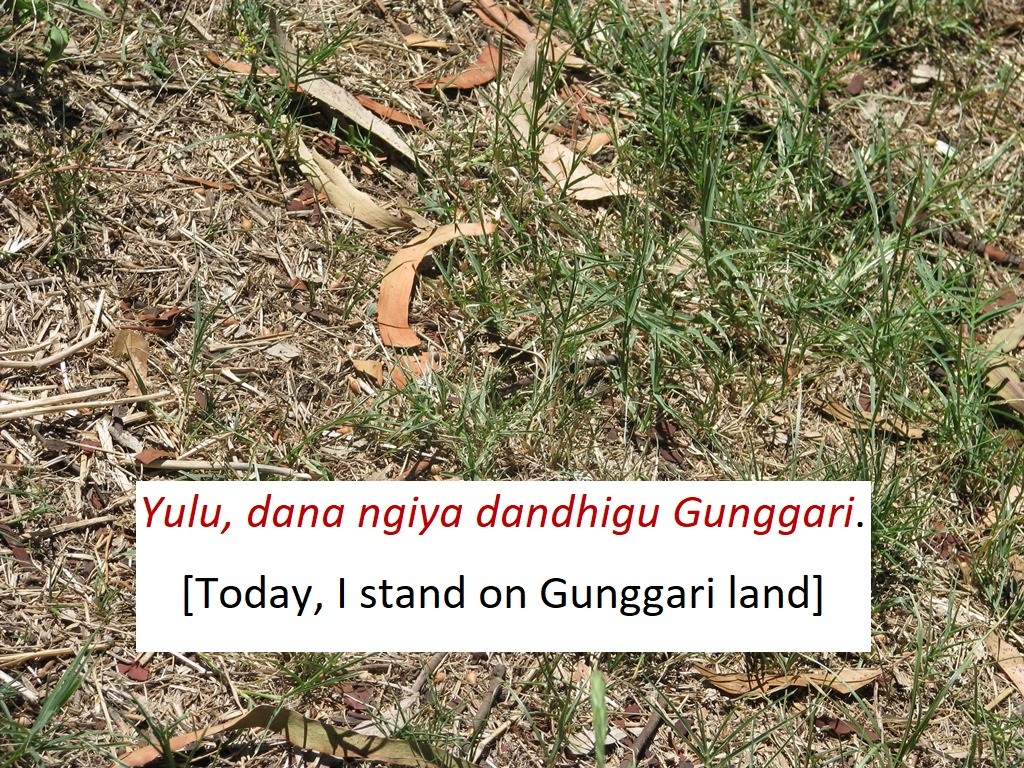
Acknowledgment of Country in Gunggari.
Here is a snapshot of ideas, resources, etc. that you could develop in partnership with Elders, Traditional Custodians and other members of your local community.
Welcome / Acknowledgement of Country in language - this could be developed with your local community and written in language for display in your library, school, community organisation or workspace. Incorporate this into your email signatures, meetings and community events.
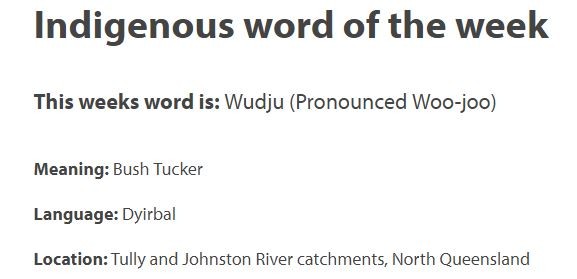
‘Word of the Week’ – during IY2019, there will be a language word of the week from the IKCs, Indigenous Language Centres and other community groups. These can be shared across your work spaces, libraries, schools and community. Share these on social media #IY2019 #IYIL #2019IYIL #SLQIndigenousLanguages #IndigenousWordoftheWeek
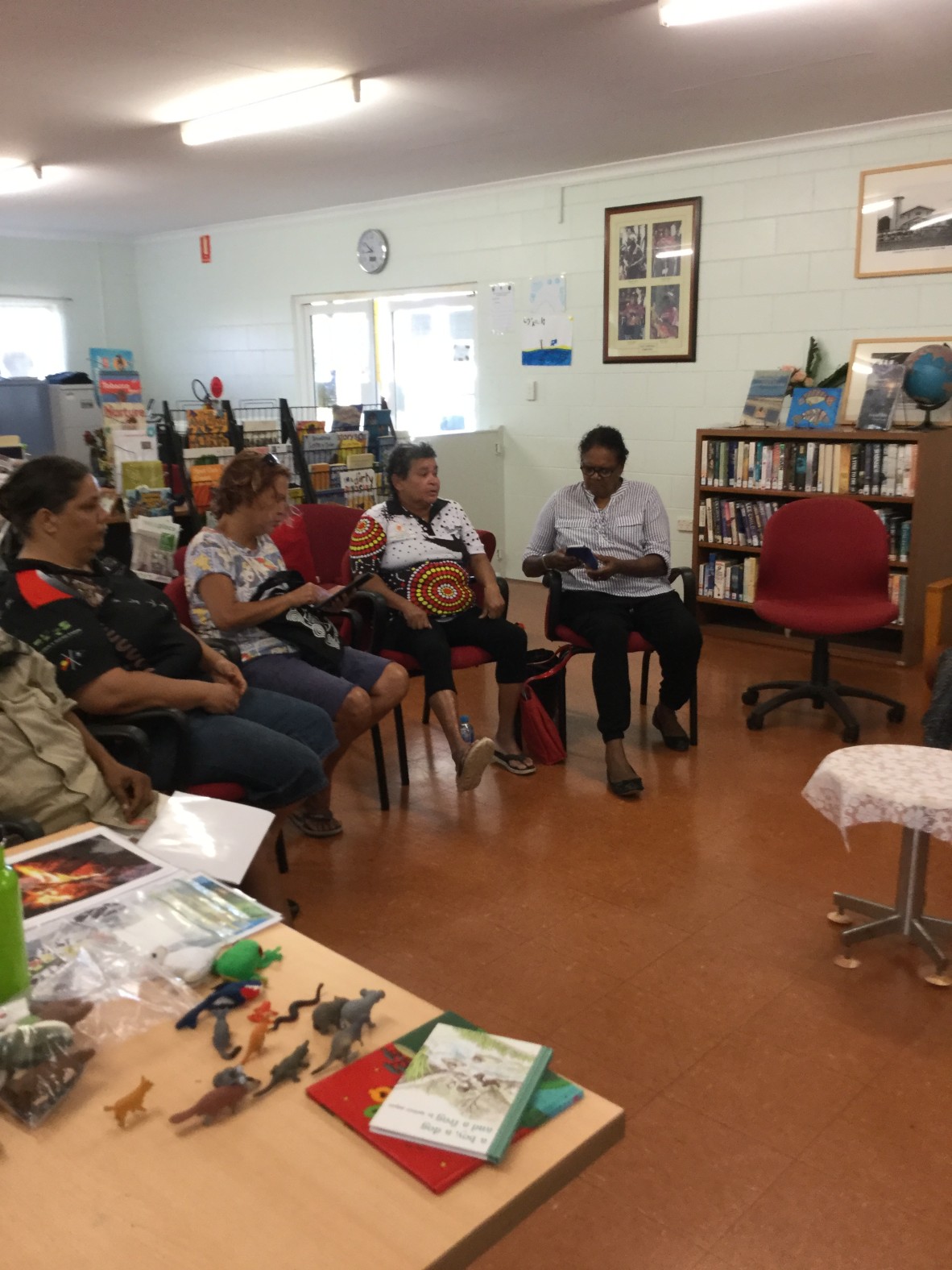
Language Circle – host informal gatherings to bring together Elders, language custodians and other community members to meet and share language. Choose a theme each month, e.g. ‘favourite language word’; ‘animals’; ‘family’, etc.
Language Nest – similar to a language circle but aimed at little ones; informal gathering of mums, bubs and nans to play and talk together using language. This could be used as part of a First 5 Forever program along with rhymes, songs and games in language. Use the wordlists on the State Library webpages to create rhymes for counting, "Heads, Shoulders, Knees and Toes", Hokey Pokey, etc.
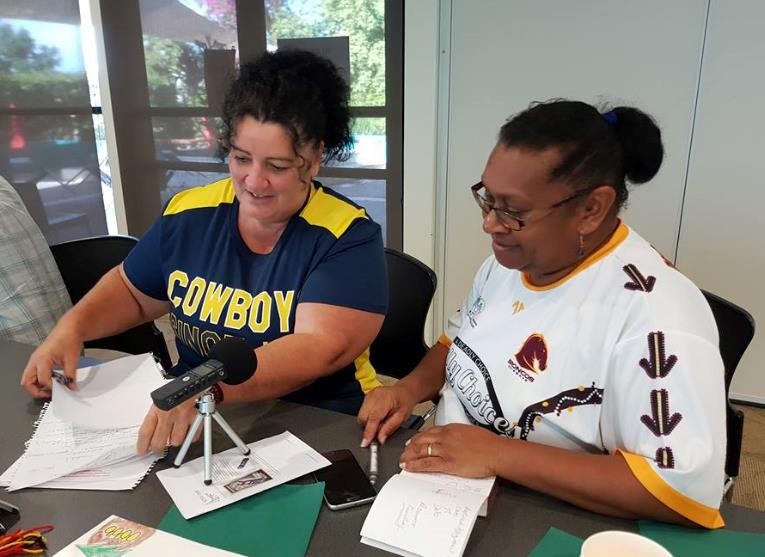
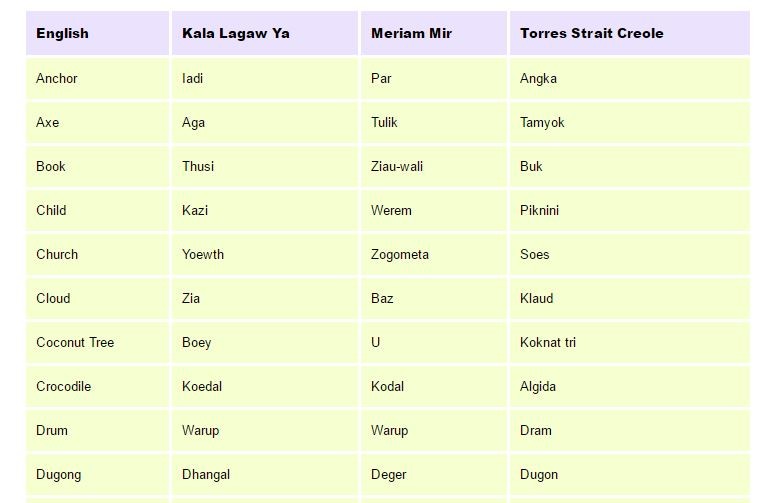
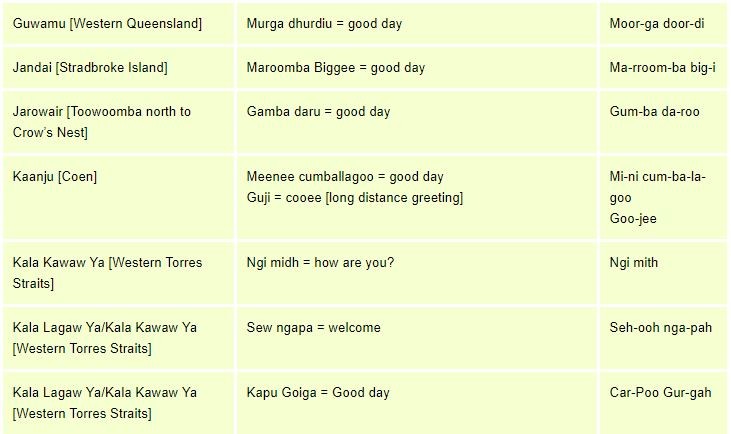
Learn greetings/farewells in the local Aboriginal and/or Torres Strait Islander languages – use daily and have these on signs in the library and community. State Library of Queensland has collated over 100 greetings for Aboriginal and Torres Strait Islander languages across Queensland. The latest version of the Yugambeh Language App features sound recordings of these greetings.
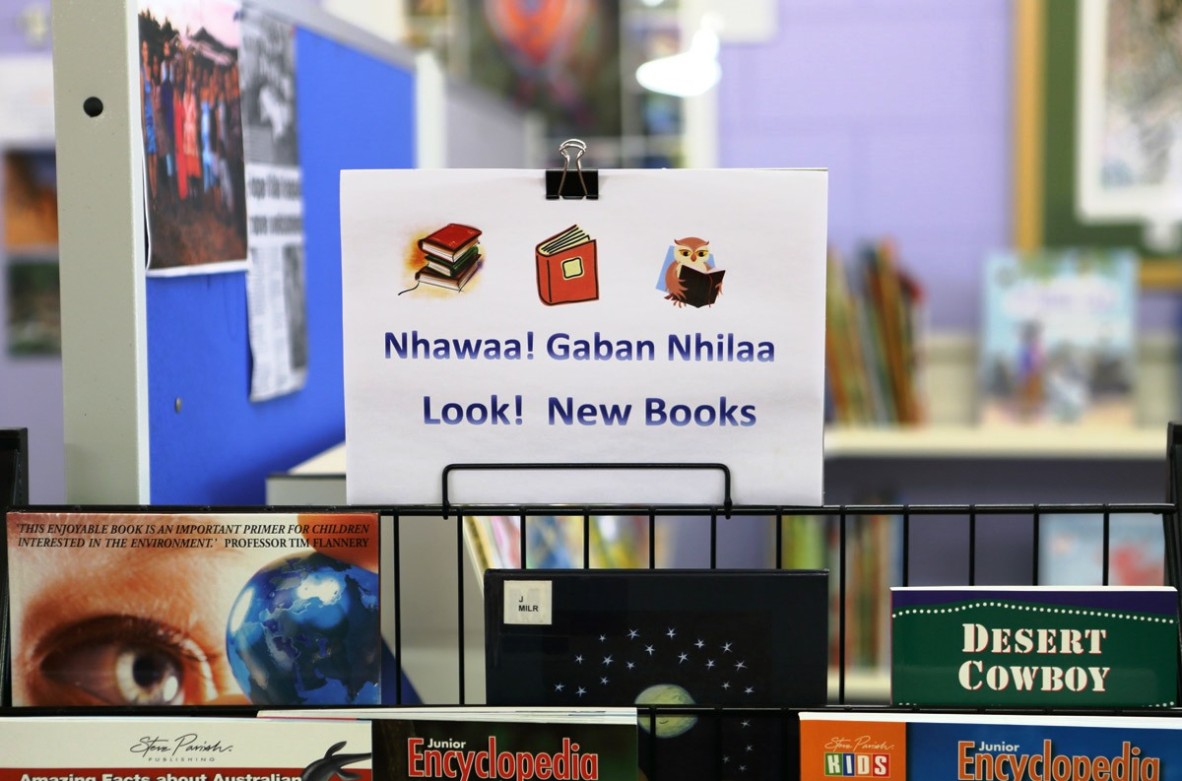
Hope Vale IKC signage: 'new books'.
Dual signage/labels in the library and community – use English and the local Aboriginal and Torres Strait Islander language for signs in your school. library or other community space.
Other ideas include:
- Incorporate language activities into key events/displays, e.g. NAIDOC & Reconciliation Weeks; Mother Tongue Day; Aboriginal and Torres Strait Islander Children’s Day; etc.
- Language Resources – make your own flash cards, chatterboxes, body charts, posters, etc. for language words.
- Language through Art / Stories – work with community members to create your books, artwork, songs using language.
- Host a community language festival to celebrate language in your town, city or community!
- Have a language display / language corner / language wall in your library, IKC or community space!
- ABC Open Mother Tongue Project
- ACARA: Australian Curriculum Framework for Aboriginal Languages and Torres Strait Islander Languages website
- Australian Institute of Aboriginal and Torres Strait Islander Studies (AIATSIS) website
- Australian Library and Information Association (ALIA): Indigenous Matters webpages
- Australian Government Department of Communication and the Arts
- First Languages Australia website
- Gambay Interactive Languages Map
- Language Legends digital stories
- Placenames Project
- International Federation of Library Associations and Institutions (IFLA): Briefing on International Year of Indigenous languages
- International Mother Language Day website
- Marrin Gamu body song website
- Our Languages website
- Queensland Government
- Queensland Indigenous Languages Advisory Council (QILAC) website
- State Library of NSW: Rediscovering Indigenous Languages website
- State Library of Queensland: Aboriginal and Torres Strait Islander Languages webpages
- United Nations International Year of Indigenous Languages website
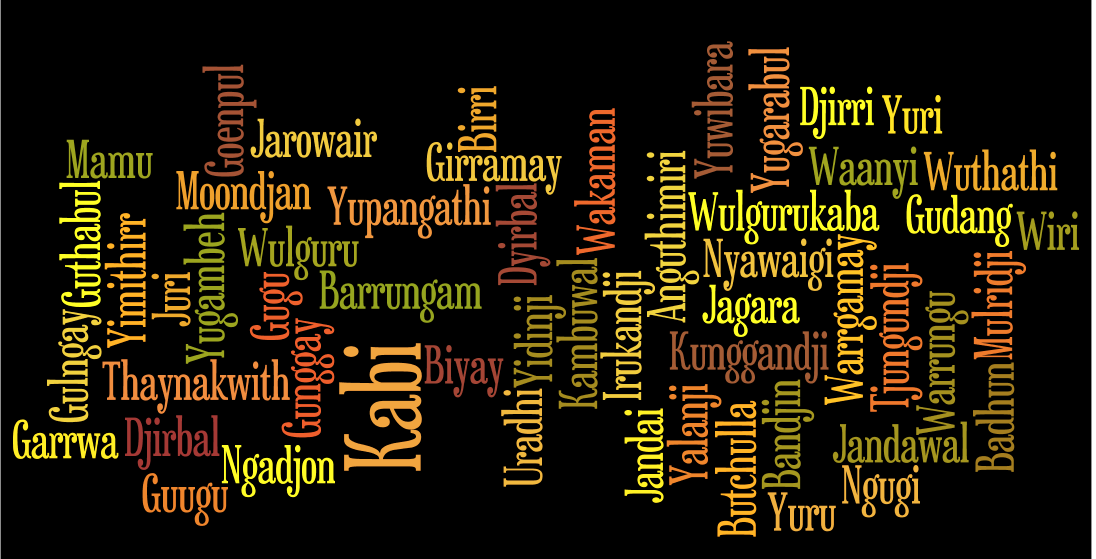
State Library is looking forward to IY2019 and is planning a program of events, exhibitions, workshops and other activities across 2019 that celebrate the rich diversity of Queensland's Aboriginal and Torres Strait Islander languages as well as raise awareness of community efforts to revive and maintain them. State Library would love to hear your news of events and other celebrations - share these with us as well as on the United Nations Calendar of events.
Desmond Crump
Indigenous Languages Coordinator, State Library of Queensland
State Library of Queensland Aboriginal and Torres Strait Islander Languages Webpages
State Library of Queensland Aboriginal and Torres Strait Islander Languages Map
Note: Additional content for this blog post has been sourced from the United Nations webpages and supporting documentation pertaining to the International Year of Indigenous Languages.
References and Further Reading
This is a selection of resources from the State Library Collections - additional items can be found using One Search.
Australian Institute of Aboriginal and Torres Strait Islander Studies (2005) National Indigenous Languages Survey. 499.15 2005
Bell, J. (1994) Dictionary of the Gubbi-Gubbi and Butchulla languages, compiled with the assistance of Amanda Seed. G 499.15321 1994
Breen, J.G. (1990) Salvage Studies of Western Queensland Aboriginal Languages. J 499.15 bre
Capell, A. (1963) Linguistic Survey of Australia. Q 499.15 cap
Curr, E. M. (1887) The Australian Race: its origins, languages, customs, place of landing in Australia and the routes by which it spread itself over that continent. RBF 572.994 cur
Edwards, R. (ed) (2003) Dictionary of Torres Strait languages. Q 499.1503 RAY
Eseli, P. (1998) Eseli’s Notebook. S 306.089 001
Howitt, A.W. (reprint) (1996) The Native Tribes of South-East Australia. J 306.089 how
Lawrie, M. The Margaret Lawrie Collection of Torres Straits Materials. TR2082
Meston, A. (undated) Archibald Meston Papers Undated. OM64-17
Nekes, H., Wurms, E. and McGregor, W. (2006) Australian Languages. J 499.15 NEK
Roth, W. (1975) Reports to the Commissioner of Police and others, on Queensland Aboriginal peoples 1898-1903. (Microfilm) Material drawn from Queensland ethnography: bulletin, nos. 11-18 / by Walter E. Roth. FILM 0714
Sharpe, M. (2005) Grammar and texts of the Yugambeh-Bundjalung dialect chain in Eastern Australia. Q 499.15 sha
Sutton, P. (ed) (1974) Languages of Cape York: papers presented to the Linguistic Symposium, Part B, held in conjunction with the Australian Institute of Aboriginal Studies Biennial General Meeting, May,1974. G 499.15 1976
Tindale, N. B. (1974) Aboriginal Tribes of Australia: Their Terrain, Environmental Controls, Distribution, Limits and Proper Names. Q 994.0049915 tin
Watson, F. J. (1944) “Vocabularies of four representative tribes of South Eastern Queensland”; supplement to the Journal of the Royal Geographical Society of Australasia(Queensland), No. 34, Vol XLVIII. REFJ 499.15 wat
Websites
AIATSIS Austlang Aboriginal and Torres Strait Islander Languages Database website
Australian Government Department of Communication and the Arts: Indigenous Languages and Arts webpages
International Federation of Library Associations and Institutions (IFLA) IY2019 Brief
Living Tongues Institute for Endangered Languages website
Queensland Government Department of Aboriginal and Torres Strait Islander Partnerships website
Queensland Government Media Release “Queensland welcomes a worldwide focus on Indigenous languages”
United Nations IY2019 website
United Nations IY2019 Action Plan
Comments
Your email address will not be published.
We welcome relevant, respectful comments.